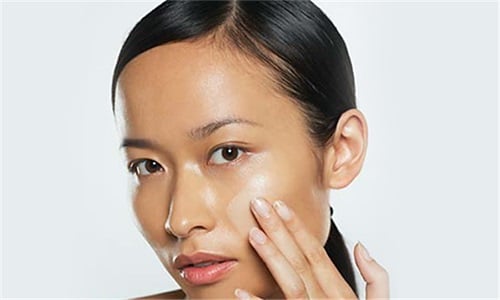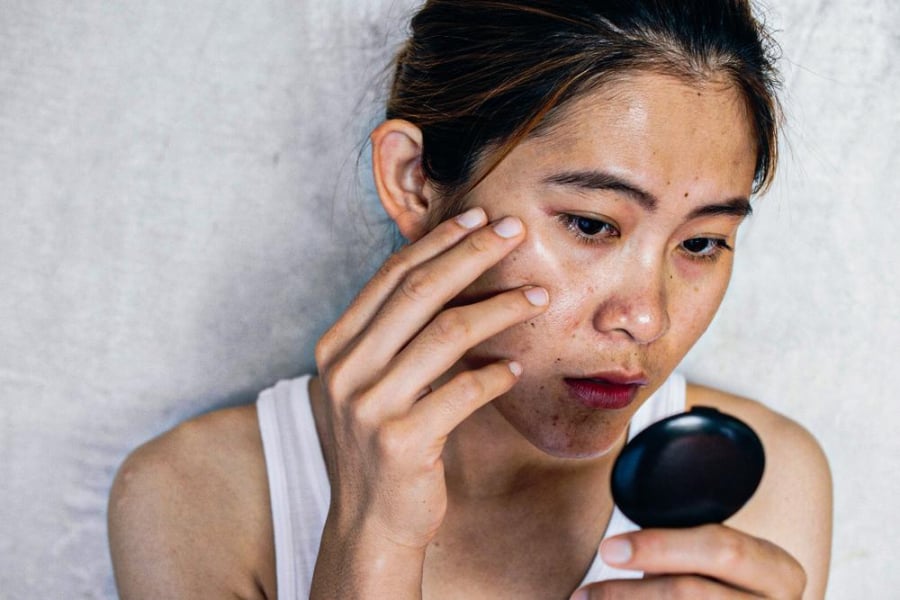Melanin is a natural pigment in the human body that gives color to the skin, hair, and eyes. When “melanin precipitates,” it can cause the skin to appear more brown and form freckles. When it is not metabolized easily, it can accumulate melanin, making the skin darker and dull, with patches of brown and freckles scattered on the skin.
Signs of “melanin precipitation”
Brown spots: at first, they may appear as rough, raised spots the size of rice grains, with a brown to black color. They may darken with age.

Darkening: It often occurs in areas that are exposed to sunlight, such as the face, neck, and hands.
Increased pigmentation after inflammation: Darkened and dull patches can be caused by acne (acne scars), wounds, or damage.
Freckles: A type of melanin pigment that is especially present on the cheekbones, cheeks, nose, arms, or chest.

Reducing melanin precipitation
– Avoid prolonged exposure to sunlight and use a hat, sunglasses, and sunscreen with a high SPF.
– Get enough sleep to recover and regenerate the skin, reducing the likelihood of melanin accumulation.
– Vitamin C and E have the effect of inhibiting melanin pigmentation, eating a diet rich in these vitamins is beneficial for skin health.
– Stimulating foods like spicy foods can also affect melanin precipitation. Reducing the consumption of sweet, salty, and spicy foods can help maintain even, fair skin.
Selecting skincare ingredients to prevent the “melanin precipitation” process
Vitamin C: An effective whitening ingredient that reduces the synthesis of melanin, promotes cell regeneration, and provides antioxidant protection.
Arbutin: A natural whitening ingredient that helps reduce melanin production, especially against dark spots and freckles.
Vitamin B3 (Nicotinamide): Has the effect of whitening the skin, reducing melanin production, and promoting even skin tone.
Antioxidants like vitamin E, glutathione, grape seed extract OPC… Protect against the harmful effects of free radicals, prevent skin aging.
Fruit acids (AHAs): This process uses lactic acid, glycolic acid, salicylic acid, etc., to remove dead skin cells on the surface and promote the production of new cells.
As we age, the skin’s metabolic process slows down, which can lead to an increase in melanin accumulation. Although this condition cannot be completely eliminated, you can still limit it by changing your daily habits.



































